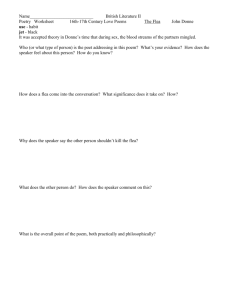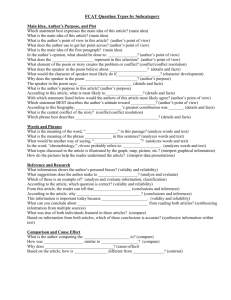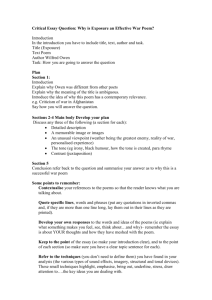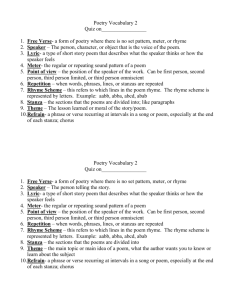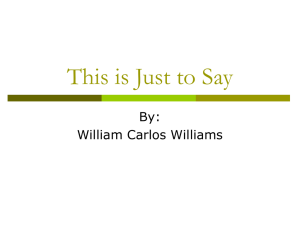File
advertisement
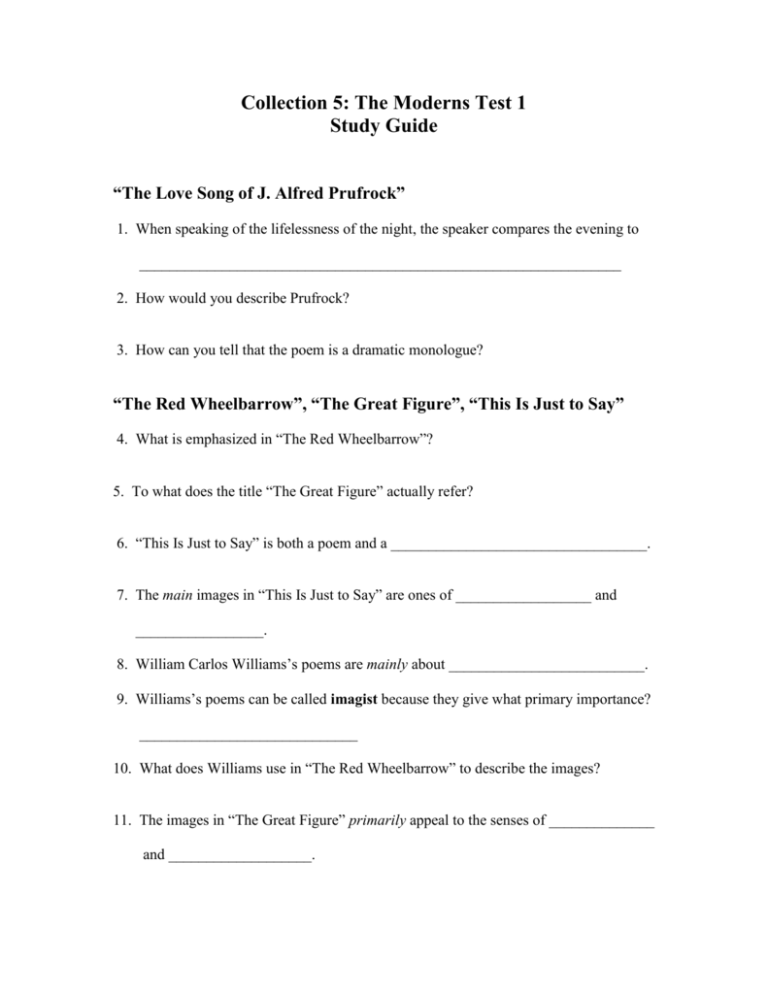
Collection 5: The Moderns Test 1 Study Guide “The Love Song of J. Alfred Prufrock” 1. When speaking of the lifelessness of the night, the speaker compares the evening to ________________________________________________________________ 2. How would you describe Prufrock? 3. How can you tell that the poem is a dramatic monologue? “The Red Wheelbarrow”, “The Great Figure”, “This Is Just to Say” 4. What is emphasized in “The Red Wheelbarrow”? 5. To what does the title “The Great Figure” actually refer? 6. “This Is Just to Say” is both a poem and a __________________________________. 7. The main images in “This Is Just to Say” are ones of __________________ and _________________. 8. William Carlos Williams’s poems are mainly about __________________________. 9. Williams’s poems can be called imagist because they give what primary importance? _____________________________ 10. What does Williams use in “The Red Wheelbarrow” to describe the images? 11. The images in “The Great Figure” primarily appeal to the senses of ______________ and ___________________. “The River-Merchant’s Wife: A Letter” and “The Garden” 12. In her loneliness the speaker finds it painful even to watch ____________________. 13. What is the main emotion the speaker expresses in the poem? __________________ 14. In “The Garden” the line “Like a skein of loose silk” describes how the woman ____________. 15. Who is “dying piecemeal” in “The Garden”? 16. What is the speaker thinking of doing in “The Garden”? “what if a much of a which of a wind” and “somewhere i have never traveled, gladly beyond” 17. What events are described in “what if a much of a which of a wind”? 18. Cumming’s “what if a much of a which of a wind” expresses confidence in what? 19. The poem “somewhere i have never travelled, gladly beyond” is mainly about how the speaker feels about whom? From your notes 20. What is the name of the movement which called for bold experimentation and wholesale rejection of traditional themes and styles? 21. What are the tenets of the American Dream? 22. What is the name of the writing style which abandoned chronology and attempted to imitate the moment-by-moment flow of a character’s perceptions and memories? 23. What is the term for a poem in which a character speaks directly to one or more listeners? 24. What movement focused on reality of life and its surroundings? 25. Which movement did not merely describe objects, but tried to portray the emotional effects that objects can suggest? 26. Define approximate rhyme. 27. Define free verse. 28. Define internal rhyme. 29. Define paradox. 30. Define rhyme scheme. 31. Define simile. 32. Define synesthesia. 33. Define syntax. You will need to match descriptions of the poems we read to the poem titles. Make sure you have read all of the poems.



